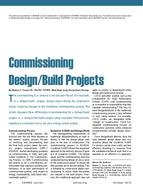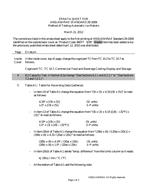Click here to purchase
The significant energy demand imposed by the fact that human comfort achievement in buildings became a basic requirement and not an optional luxury, call for quantitative and qualitative assessment targeted at decreasing the consequential carbon footprint of the operations management and built environment. Optimization decisions towards the operations management are associated with green house gas (GHG) emissions reduction, climate change mitigation, improved human health and well-being, water and energy conservation and green product design. Outcomes include energy conservation measures and alternative building systems are part of the practical approaches to reduce the building energy use, integrating water conservation measures as part of building design core values, optimal waste handling and storage strategy, efficient lighting fixtures to reduce electrical energy use, effective lighting and occupancy controls, integration of effective daylighting and views in the building design, an effective guest room management system, efficient vertical transportation systems, metering and submetering through the refined measurement of energy and water use, thermally comfortable indoor and outdoor environments, establish better quality indoor air in the building after construction and during occupancy and enhanced commissioning. Several rating systems have been established worldwide to reduce the buildings environmental impacts, provide designers with a roadmap and guidance to decrease carbon foot print, consume less energy, preserve water, produce a reduced amount of waste, and improve indoor environmental quality. In this paper, the sustainable operations management of a high rise hospitality building typology, located in Qatar, is assessed.
Citation: 4th Intl Conf: Efficient Bldg Design
Product Details
- Published:
- 2020
- Number of Pages:
- 9
- Units of Measure:
- Dual
- File Size:
- 1 file , 1.3 MB
- Product Code(s):
- D-ICEB20-14


